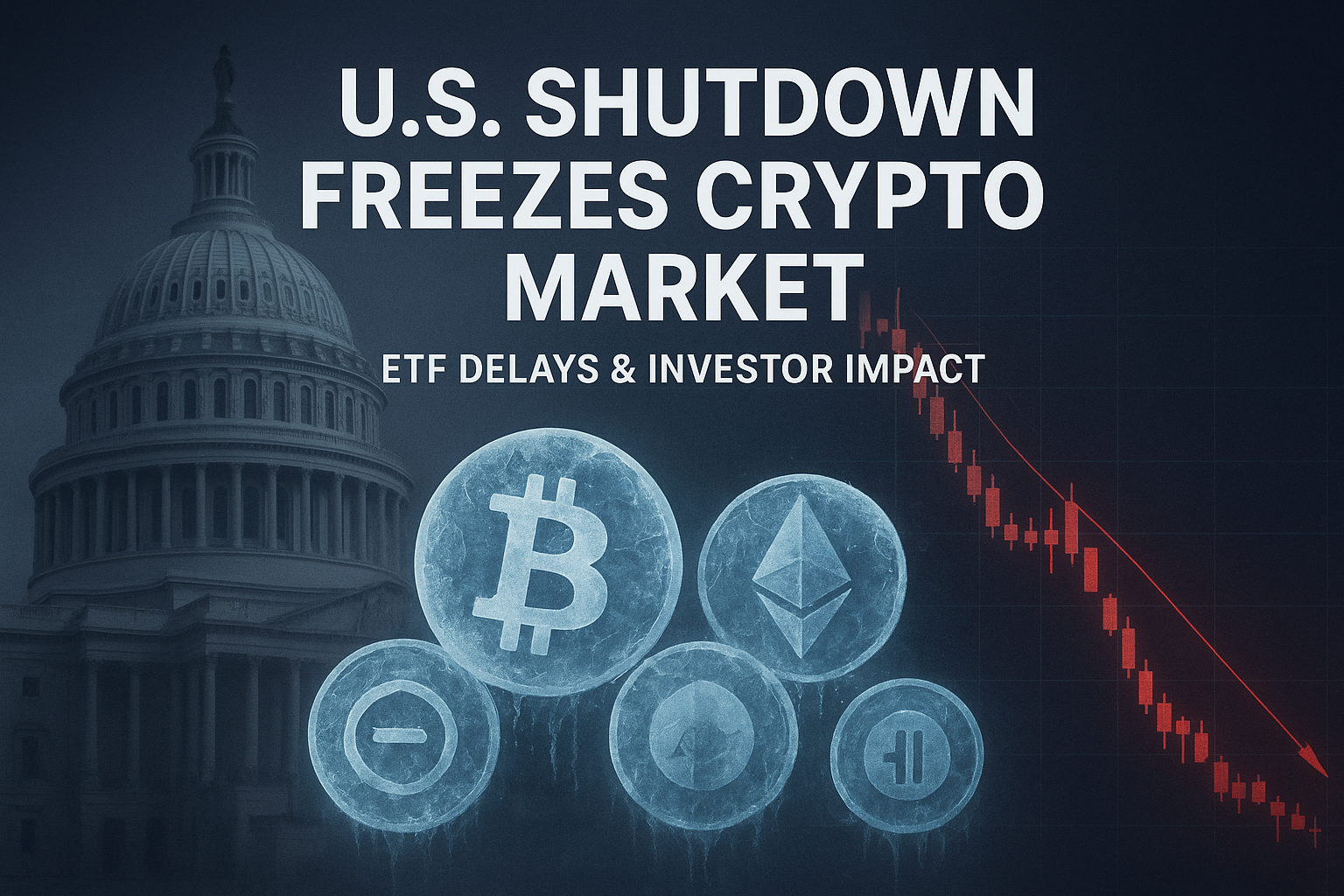Gemini Files for IPO Despite Heavy Losses: What It Means for Crypto’s Next Big Leap


The headline Gemini Files for IPO Despite Heavy Losses has quickly become one of the most talked-about topics in the crypto world. Investors are curious about what it means when Gemini’s IPO plan amid heavy liabilities at a time when the company is still struggling with profitability. Supporters argue that Gemini’s IPO plan amid heavy liabilitiess shows confidence in the long-term growth of digital assets, while critics see it as a risky move that could test market sentiment.
At first glance, this might look like a risky or even reckless step. Why would a company struggling financially push ahead with an IPO? The answer lies in a mix of market momentum, institutional acceptance, and the broader trend of crypto firms going public—a wave often referred to as the “Gemini Files for IPO Despite Heavy Losses.”
In this article, we’ll break down:
- What Gemini’s IPO filing means for the market
- Why this move matters for institutional adoption of crypto
- The risks and opportunities investors should consider
- How this could shape the next phase of the crypto industry
- Gemini Files for IPO Despite Heavy Losses
🌐 A Quick Recap: Who Is Gemini’s IPO?

Founded in 2014 by the Winklevoss twins (best known for their early involvement with Facebook), Gemini Trust Company quickly established itself as a trusted name in the cryptocurrency exchange space. Unlike some of its more aggressive rivals, Gemini has long promoted itself as a compliant, security-first, and regulation-friendly exchange.
It became one of the first exchanges to receive a BitLicense in New York, a tough regulatory hurdle that many other platforms avoided. Over the years, Gemini has added trading for dozens of cryptocurrencies, launched custody services for institutions, and even introduced its own stablecoin, the Gemini Dollar (GUSD).
However, despite these achievements, Gemini has faced fierce competition from giants like Coinbase, Binance, and newer exchanges offering cheaper fees and wider trading options.
📉 The Financial Picture: Losses & Liabilities
Here’s the reality: Gemini’s books don’t look great right now.
- Losses in H1 2025: $282 million
- Outstanding Liabilities: $2.1 billion
These figures highlight the financial strain of running a large-scale exchange in an industry where:
- Trading volumes can swing wildly
- Legal battles over regulations are expensive
- Competition drives down profit margins
Despite this, Gemini is betting big on an IPO as a way to raise capital, boost credibility, and position itself as a long-term player in the crypto space.
🚀 Why File for an IPO Now?
The timing of this IPO isn’t random—it reflects broader trends:
- Institutional Acceptance Is Growing
Wall Street and traditional finance are warming up to crypto. With Bitcoin ETFs already gaining traction, the IPO of a crypto exchange signals deeper integration of digital assets into mainstream markets. - “Crypto Summer” IPO Wave
2025 has been marked by a new wave of crypto companies filing for public listings. Gemini doesn’t want to miss this momentum. Going public now could allow it to tap into investor enthusiasm, even with financial losses. - Capital Infusion
An IPO could provide Gemini with the capital it needs to cover liabilities, expand its services, and compete with bigger rivals. - Reputation & Transparency
By becoming a public company, Gemini will be required to disclose its financials regularly—a move that can rebuild trust after a rocky couple of years for the exchange industry.
📊 Lessons from Coinbase’s IPO
To understand Gemini’s strategy, let’s compare it to Coinbase, which went public in 2021.
- Coinbase also faced skepticism about volatility and regulation.
- Despite ups and downs in stock price, its IPO legitimized crypto exchanges in the eyes of traditional investors.
- It showed that being a public company brings stability, oversight, and wider acceptance.
Gemini might be following a similar playbook, hoping that its IPO will signal confidence in its long-term viability.
⚖️ Risks Investors Should Watch
While the IPO is exciting, there are risks:
- High Liabilities: $2.1 billion is no small number. Investors will need clarity on how Gemini plans to manage or reduce this debt.
- Competition: Coinbase, Binance, Kraken, and even decentralized exchanges like Uniswap are tough rivals.
- Regulation: The U.S. is still ironing out crypto regulation. Any unfavorable rulings could impact Gemini’s growth.
- Market Volatility: Crypto prices heavily influence trading revenue. A bearish turn could worsen losses.
🌟 Why This Still Matters for Crypto
Even with financial strain, Gemini’s IPO is a symbolic milestone:
- It shows that crypto companies are confident enough to face public scrutiny.
- It aligns with a larger narrative of institutional adoption of digital assets.
- It may encourage other exchanges, custody firms, and crypto service providers to explore public listings.
Ultimately, Gemini’s IPO isn’t just about one company—it’s about the crypto industry proving it belongs in mainstream finance.
🔮 What’s Next?
If the IPO succeeds, Gemini could secure the funding it needs to:
- Strengthen its exchange offerings
- Expand custody services for institutions
- Innovate in areas like stablecoins and DeFi integration
If it struggles, it may serve as a cautionary tale for other exchanges considering going public. Either way, the outcome will be closely watched across Wall Street and the crypto world.
📝 Final Thoughts
Gemini’s IPO filing is a bold move in the face of financial losses and heavy liabilities. But boldness has always been part of the crypto industry’s DNA. Whether this step pays off will depend on market sentiment, investor appetite, and Gemini’s ability to deliver on its promises.
What’s undeniable is that this IPO represents a turning point in crypto’s relationship with traditional finance. Just like Coinbase’s IPO changed the conversation in 2021, Gemini’s public listing—if successful—could mark another chapter in the integration of digital assets into the U.S. financial system.
For crypto investors and enthusiasts alike, Gemini’s IPO is more than just a headline—it’s a sign of where the future of finance may be headed.



